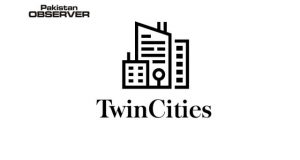Observer Report
Supreme Court Judge Qazi Faez Isa on Saturday highlighted the duty and responsibility of the judiciary within a democratic system and said that it “has the authority to stop an individual or institution in the event they transgress the fundamental rights accorded to them”.
His remarks came during a lecture at Karachi’s Institute of Business Administration where he was invited to speak on ‘Law, Judicial Interventions and Social Change: with a special focus on Labour Law’.
Justice Isa currently has a presidential reference against him pending before the Supreme Judicial Council. He has filed a petition challenging the reference, which will be heard on September 24 by a 10-member bench of the Supreme Court.
The reference had been instituted in May this year, accusing him of concealing his properties in the United Kingdom allegedly held in the name of his wife and children.
Justice Isa believes that he is being targeted by factions within the state for his outspoken views. He also believes that the charges brought against his person constitute an attack on the independence of the judiciary.
“The foundation of the Constitution of Pakistan rests on three pillars. The first is the parliament which is responsible for legislation. The second is the government or administration which enacts the legislation. The third is the judiciary which interprets the Constitution and law and ensures that every individual and institution operates from within the scope of their authority,” he said.
Justice Isa went on to say that democratic principles must be adhered to if a country wishes to stand strong. “History stands witness to the fact that whenever institutions have crossed the bounds of their authority, not only are the fundamental rights of people violated, the country is weakened and can break apart as well,” he said.
“We secured independence for a region which was based on two provinces: East Pakistan and West Pakistan. “When one man’s dictactorship was in place and martial law had been instituted — first in General Ayub Khan’s time and then in General Yahya Khan’s tenure — the democratic rule of law had been sidelined and resultantly, we were robbed of half of Pakistan.
“When the democratic system is weakened within a country and the voice of one man drowns out the voices of others, then the enemy takes advantage of this. And this is what happened in 1971. Thousands of military soldiers and officers were unable to do anything to save the country from breaking apart. The objectives resolution (the preface to the Constitution) had very rightly laid emphasis on democracy two decades prior for this very reason,” Justice Isa emphasised.
“We now call Pakistan what was West Pakistan at the time, but in truth, this is half Pakistan.”
He questioned whether we had learned our lesson from history.
Speaking of the famous report put together by Justice Hamoodur Rehman on Zulfiqar Ali Bhutto’s instructions to unearth the reasons behind such a loss, he said, “It is regrettable that today, even after the passage of more than 47 years, this report was not published and the people were not made aware of the reasons that lead to this incident.”
“Institutions and countries are strengthened only when they learn from their mistakes and do not repeat them. Those who avert their gaze from transgressions made or hide the truth, neither do they learn from their mistakes, nor do they lead institutions towards a position of strength,” said the Supreme Court judge.
He also made clear that it is also incumbent upon the judiciary to not cross its own scope of authority. “Before I raise my finger at any institution in particular, I will talk about my own, and provide a few examples to clarify what I am saying.
“The federation and governments of all four provinces levied a tax on mobile phones. The federation placed additional income tax and excise duty, whereas the provinces charged a sales tax on services.
“Based on a written, anonymous complaint, the Supreme Court suspended six different taxes invoking Article 184(3). But when the final judgement was issued, it said that the order was not justified for the placement of such restrictions because taxes do not form part of fundamental rights and so their levying or not cannot be deliberated upon by the Supreme Court.”
He said that in the period the taxes were suspended through the Supreme Court’s prohibition order, the national exchequer witnessed a loss of Rs100bn — an amount which cannot be recovered now.
“The courts should exercise judgments in accordance with the Constitution; those decisions which ignore the Constitution and law are never lasting despite appearing to be in accordance with the people’s wishes.”









